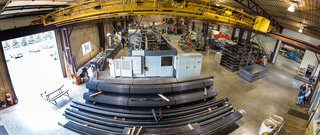Key findings
- Health care has long been a driver of Southeast Minnesota’s economy. Manufacturing and professional and business services are also major employers. Strengths also include sectors that have been growing in the region. Industries with the highest growth rates include construction, leisure and hospitality, and transportation and warehousing.
- COVID-19 created significant economic upheaval. By January 2021, there were 10,300 continuing unemployment claims in the region. Industries with the highest number of claims included construction, professional and business services, and leisure and hospitality.
- Industries studied in the workshop include residential construction, food manufacturing, food service and drinking places, health care, metal manufacturing, and high technology.
- Participant ideas for supporting industry in Southeast Minnesota included the following ideas that received the most votes:
- Public-private partnerships to connect the labor force with jobs.
- People attraction campaign.
- Increase connections with high schools for health care careers.
- Increase youth awareness of careers in construction and trades.
About this report
The COVID-19 pandemic created significant economic upheaval. The economic impacts, however, have been uneven. To better understand the effects of COVID-19 in Southeast Minnesota, Extension partnered with representatives from Southeast Minnesota Together, Minnesota Department of Employment and Economic Development, Workforce Development, Inc., and the Southeast Service Cooperative to offer a workshop in early April 2021. The report summarizes the workshop.
The Economic Futures Workshop helps community leaders look objectively at the state of their local economy. The workshop examines the interactions within an economy – among businesses and between businesses and consumers. Using information about how these linkages function, leaders can begin to understand the full implications of change on the local economy. The Futures Workshop can also help communities understand how efforts by different organizations can affect the economy.
Reviewed in 2021


